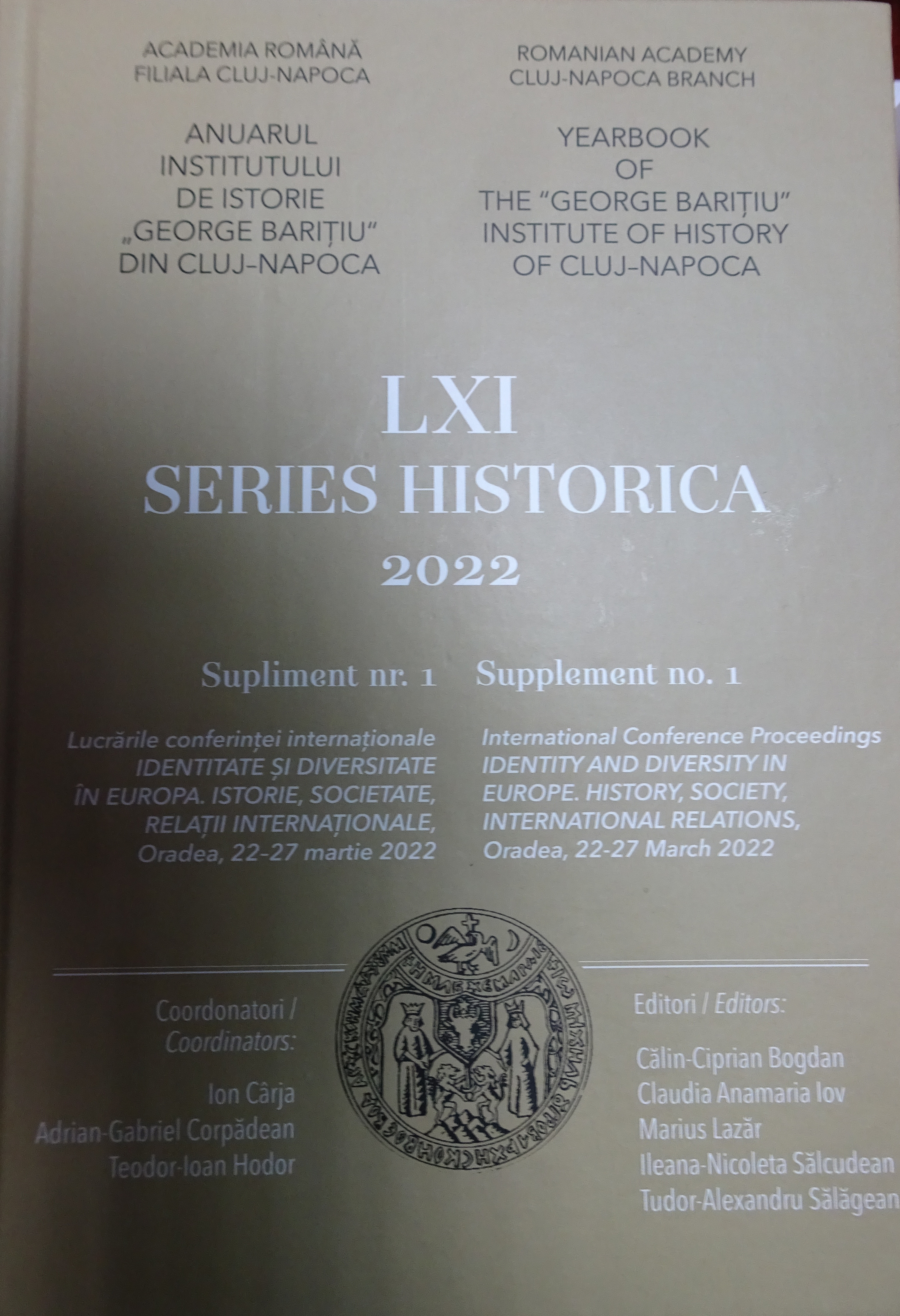Sulle Spalle Dei Vegliardi. I „Moși” Principali Del Calendario Cerimoniale Romeno
On the Shoulders of the Elders. The Main „Moși” Of The Romanian Ceremonial Calendar
Author(s): Alexandru Mihai BurlacuSubject(s): Cultural history, Ethnohistory, History of ideas, Recent History (1900 till today)
Published by: Editura Academiei Române
Keywords: Folk religion; cult of the dead; masquerades; Carnival; sacrifice;
Summary/Abstract: The historical origins of the characters depicted during the popular winter masquerades continue to be shrouded in a mystery that is looming as unsolvable. However, I consider that this background nebulosity can be, gradually, removed if not entirely at least in a very large part. To do this, it will be necessary to use as much as possible the historical sources, written and unwritten, coming from and concerning the territories of the Roman Empire until Late Antiquity, as well as those coming from the territories contiguous to the Roman limes. These should be compared to contemporary ethnographic texts, to manage to understand the general lines of evolution of these rites and mythemes. Two of the most widespread characters, as a macro regional territorial extension, of such masquerades are the Old Man and the Old Woman. In our opinion there is a fundamental trait of the Romanian ceremonial calendar, namely the Moși (literally, “the elderly, the old men”), who can offer a decisive contribution in view of a better understanding of the historical formation of the characters of the winter masquerades. The term “Moși designates both the calendar dates in which offerings are made and the objects offered to honour the dead” (Ion Taloș). Of the many dates of the ceremonial calendar in which these forms of commemoration of the dead appear, I have chosen the three most important (autumn, winter and early summer), further confirming the thesis formulated by the anthropologist Giovanni Kezich according to whom there would be a whole semester, which goes from the catholic All Saints to Pentecost, a period in which from a mythological point of view the souls of the dead return to their homes, and from a ritual point of view, masquerades and questuas are performed in the streets in calendar days that vary from one region to another.
Journal: Anuarul Institutului de Istorie »George Bariţiu« - Series HISTORICA - Supliment
- Issue Year: 1/2022
- Issue No: LXI
- Page Range: 145-157
- Page Count: 13
- Language: Italian

